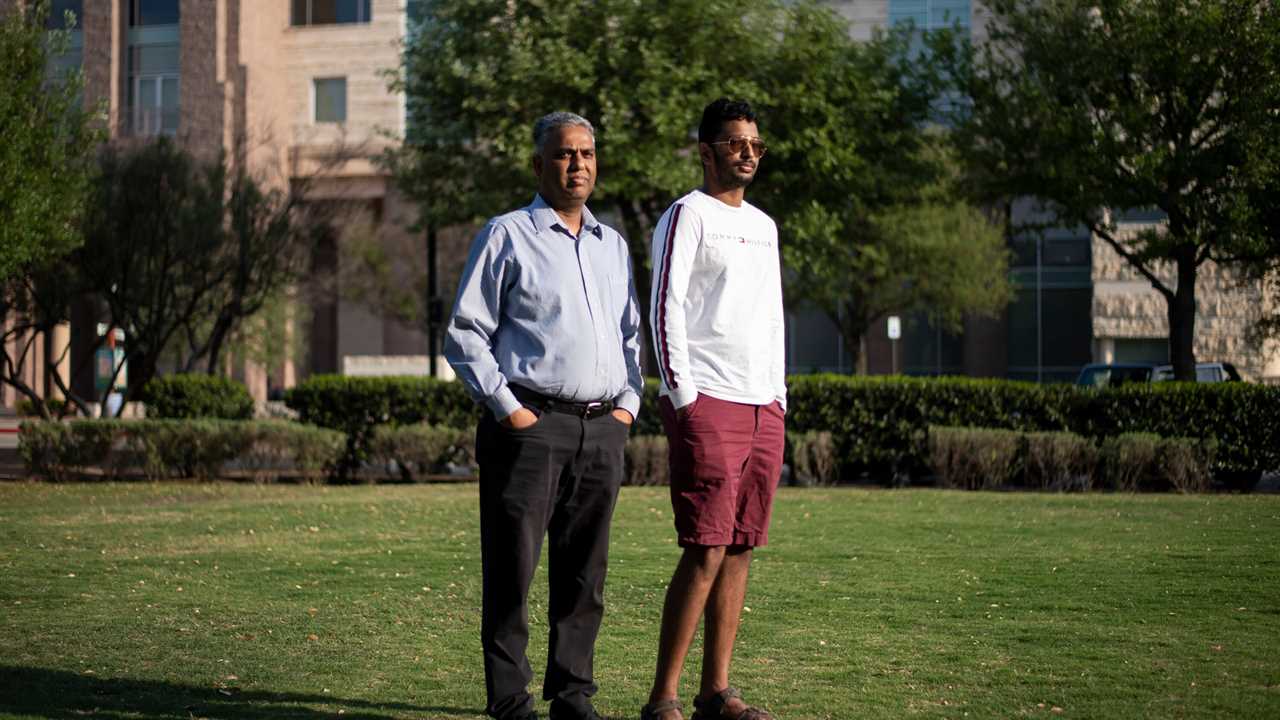
WASHINGTON — In 2011, after five years of working and living with his family in the United States on a temporary visa, Barathimohan Ganesan submitted green card applications for his wife, his 5-year-old daughter and his 11-year-old son.Mr. Ganesan, an Indian citizen who has also lived in Singapore and Australia, was nervous about when his wife and children might gain permanent residency. He knew the waiting list was especially long for Indians on his kind of visa, an H-1B, which allows American companies to employ skilled foreign workers. Because of chronic backlogs, it can take years to process those on work visas who apply for permanent residency.Last year, a decade after he applied, Mr. Ganesan, his wife and his daughter received their green cards. But his son had turned 21 and missed the cutoff by months, leaving him scrambling for a visa that would allow him to stay in the United States.Mr. Ganesan’s son is among more than 200,000 children who grew up in the country under the protection of their parents’ temporary visas, which can be renewed indefinitely. But the children risk losing their legal status when they turn 21. Unable to become permanent residents because of the backlogs or because they were never eligible, they must obtain a different visa, remain in the United States without legal status or leave entirely. According to the Cato Institute, more than 10,000 children age out of green card eligibility each year; untold numbers eventually depart, often leaving their families behind.These young people do not qualify for the Deferred Action for Childhood Arrivals program. Created by executive action during the Obama administration, the DACA program protects from deportation about 650,000 youths, or Dreamers, who were brought into the United States and have remained without legal status. Because the program requires applicants to be undocumented, it does not offer those with legal status a way to stay.A comprehensive immigration overhaul is highly unlikely to pass a deadlocked Congress in a midterm election year. The Biden administration has been under increasing pressure as a Trump-era public health order, known as Title 42, is set to be lifted in late May, a move that is expected to create a surge of migration across the southwestern border. A bipartisan group of senators restarted immigration discussions on Thursday to try to identify stand-alone proposals that would have the support of both parties.When asked on Thursday whether the administration — which is updating DACA — was considering extending protections to documented youths, Alejandro N. Mayorkas, the homeland security secretary, told the House Judiciary Committee that the department did not plan to do so. Its focus was “to fortify the existing DACA program” and shift responsibility for documented youths to Congress, he said, adding that their situation spoke to “the imperative to pass immigration reform.”In interviews, more than a dozen people who lived in the United States on temporary visas from a young age described their struggles with anxiety and the financial burden of navigating how to remain in the country they considered home. They are urging the Biden administration, if it will not provide a path to citizenship, to offer a way for them to legally remain in the country.Mr. Ganesan’s son, Niranjan Barathimohan, is able to stay in the United States until November only because immigration officials extended his dependent visa. Mr. Barathimohan, a student at the University of Texas at Dallas, will have to go to Singapore, where he was born, to apply for a student visa that will allow him to return and finish his degree.His application might be rejected; since he previously tried for a green card, he has shown an intent to immigrate to the United States, which is not allowed. Applicants may be asked to show that they intend to leave the country after completing their courses. Mr. Barathimohan faces the prospect of being stuck in Singapore, where he has no family or roots.Read More About U.S. Immigration
At the Border: Gov. Greg Abbott of Texas hoped to crack down on smuggling with safety inspections. Facing snarled traffic and political backlash, he had to backtrack.‘Remain in Mexico’ Program: The Supreme Court is hearing arguments over whether the Biden administration can end a policy forcing asylum seekers to await approval in Mexico.Undocumented Immigrants: As it ends contracts and looks to reduce bed capacity at detention facilities, the government appears to be moving away from incarcerations.Trump-Era Policies: President Biden vowed to unravel Trump-era immigration rules. Disagreements inside the White House have complicated that effort.“How is he going to manage alone?” Mr. Ganesan said. “I was really devastated that justBy: Aishvarya Kavi
Title: They Grew Up Legally in the U.S., but Can’t Stay After They Turn 21
Sourced From: www.nytimes.com/2022/04/30/us/politics/documented-dreamers.html
Published Date: Sat, 30 Apr 2022 14:37:47 +0000
Read More
 UK PoliticsWorld PoliticsVideosPrivacy PolicyTerms And Conditions
UK PoliticsWorld PoliticsVideosPrivacy PolicyTerms And Conditions
